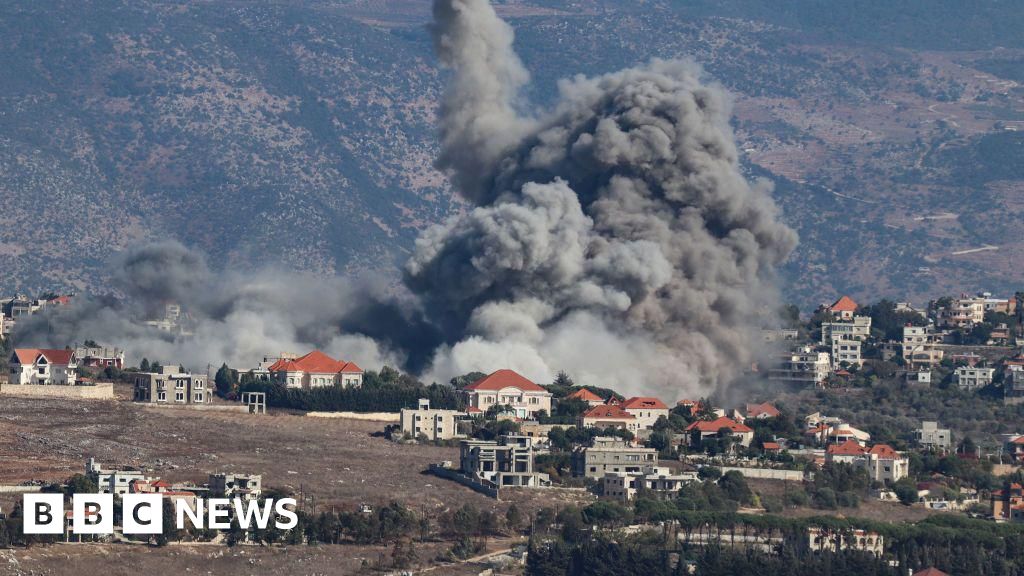Israeli Prime Minister Benjamin Netanyahu has told the country’s military to continue fighting the militant group Hezbollah “with full force” despite calls for a cease-fire by the United States and other allies.
Israeli airstrikes killed at least 28 people in Lebanon on Thursday, bringing the total death toll since Monday to more than 630, according to local health officials.
The Israeli military said the head of Hezbollah’s drone unit, Mohammed Surur, was killed in an attack on an apartment building south of Beirut.
After a dramatic escalation in Israeli attacks on Lebanon since Monday, fears of an all-out war between Israel and Hezbollah are high.
The escalation of hostilities prompted the 12-power bloc, including the US, the UK and the EU. Proposes a three-week truce Wednesday between Israel and Hezbollah.
The proposal was initially met with optimism after Israel’s ambassador to the UN, Danny Danon, said his country was “open to ideas”.
But by Thursday it had been completely rejected by Israeli politicians.
Landing in New York for the UN General Assembly, Mr Netanyahu said Israel was “not going to stop” in Lebanon until it achieved all its goals, “first among them the safe return of the residents of the north to their homes”.
The White House later said the ceasefire plan was “coordinated” with Israel, despite Mr Netanyahu’s claim hours later that his country would continue fighting.
About 70,000 Israelis have been displaced from the country’s north since hostilities between Israel and Hezbollah, fueled by the war in Gaza, began nearly a year ago.
In Lebanon, some 90,000 people have been displaced since Monday, and 110,000 have already fled their homes, according to the UN.
On Thursday, the Israeli military said it struck Hezbollah targets in southern Lebanon and the Bekaa Valley in the east of the country.
It also attacked infrastructure along the Lebanon-Syria border, which it said was cutting off arms supplies to the group.
Meanwhile, Hezbollah said it fired 50 rockets at the Kiryat Ata settlement and 80 missiles at the northern Israeli city of Safed.
Israel’s military chief, Lt. Gen. Herzi Halevi, said Wednesday that Israeli airstrikes on Lebanon would pave the way for the IDF.Enter enemy territory”.
Israeli Air Force (IAF) commander Major General Tomar Barr on Thursday told troops to be “ready” to support a “ground maneuver” inside Lebanon.
Meanwhile, Qatari government spokesman Majid al-Ansari said, “There have been horrifying reports from Lebanon of targeting entire families, similar to the atrocities in Gaza.”
After meeting his British and Australian counterparts in London, US Defense Secretary Lloyd Austin said Israel and Hezbollah face the risk of “an all-out war” but that a “diplomatic solution is still possible”.
“Israel has stated that its goal is to return its citizens to their homes in the north. I believe the fastest way to do that is through diplomacy,” Austin said.
On Thursday evening, Israel’s Ministry of Defense (IMoD) said it had received an $8.7bn (£6.5bn) US aid package to support its ongoing military campaigns.
In a statement, the IMoD package included $3.5bn in “essential wartime procurement”, which has already been transferred, and $5.2bn for air defense systems such as Iron Dome, the David Sling and an advanced laser system.

